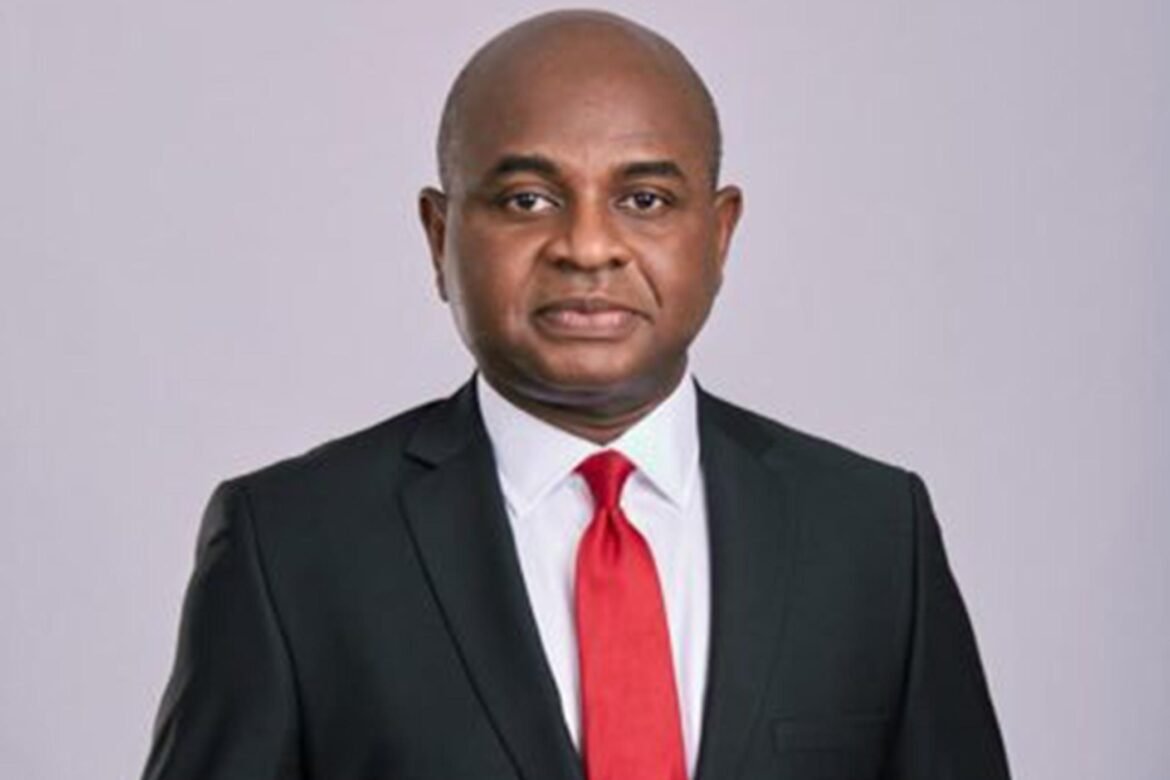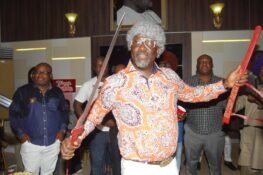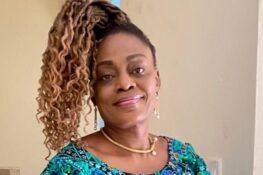Do you see this year’s Budget performing better than previous budgets now that it is a January-December budget cycle?
A January-December budget cycle is a good move and it is good the 2020 budget was submitted on time in the last quarter of 2019.
But the type of cycle adopted is not the only issue in budgeting.
There are deeper challenges we face in our governance such as the effectiveness, transparency and actual performance of budgets, and even what should be role of the National Assembly.
Only they can appropriate budgetary expenditure, but should they unilaterally add budget items not proposed by the executive branch of the government?
The Federal Government of Nigeria, overall, has not performed well in budget management, and this is a fundamental demonstration of weak governance with no real impact of the welfare of ordinary Nigerians.
Let’s look at the very fundamental matter of budgetary priorities.
To have a proposed 2020 budget of N10trn in which Education is only allocated N48bn (excluding N112bn for Universal Basic Education) and Health is allocated N46bn, while N37bn has been approved for “renovation” of the National Assembly, tells you we have seriously misplaced priorities.
That N2.5trn (25 per cent) of the 2020 budget will go to debt servicing, while nearly N5trn (50 per cent) will go to recurrent non-debt expenditure tells us that government budgeting in Nigeria is simply not serving the real needs of the poor masses of Nigeria for development.
President Buhari has requested $29bn loan. What’s you take on that?
This illustrates my response to your earlier question.
Our priorities are wrong. Nigeria is being sold into debt slavery in which we will remain long after the present federal government is gone.
I don’t support such a loan, on top of the fact that we are already overburdened by debt which has tripled since 2015.
These are economic facts and realities, not politics.
It is very unfair to Nigerians when partisan supporters of the government of President Muhammadu Buhari attempt to label logical, fact-based economic critiques as partisan politics or somehow unpatriotic.
Foreign borrowing has never served Nigeria well, and this will be no different, regardless of the “plans” to justify it, like spending $500m to “digitise” the Nigerian Television Authority.
It is really difficult to understand the rationale for this new expedition in foreign borrowing. By the time we are done, 80 per cent of our revenues will be going to debt servicing. It’s not a sustainable scenario in my view.
To have a proposed 2020 budget of N10trn in which Education is only allocated N48bn (excluding N112bn for Universal Basic Education) and Health is allocated N46bn, while N37 billion has been approved for “renovation” of the National Assembly, tells you we have seriously misplaced priorities
One major argument to justify debt incurred through loans by the federal government is that they are used to finance capital projects. Are there better alternatives to fund capital budget without incurring more debt?
I disagree. We should be spending more on human development – financing job creation through entrepreneurship by way of equity-based venture capital, education reform towards a predominantly science, technology and innovation-based curriculum and teacher re-training, skills training, and healthcare.
Infrastructure projects should be financed more through public-private partnership financing. Nigeria will offer good returns on such investments by the private sector.
What are your economic projections for the new year?
I see more poverty and unemployment in the horizon. The introduction of an increased VAT in a fragile economic recovery instead of expanding the tax base through the informal economy, will affect the pockets of Nigerians negatively, even if a new minimum wage will offer some relief.
Inflationary pressures will therefore remain. Our foreign reserves will remain under pressure from the oil price, and the Central Bank of Nigeria will continue to labour to maintain macroeconomic balance, but of course is unable to solve the fundamental problems of the Nigerian economy which are more structural and political.
Without issues such as massive recurrent expenditure, excessive borrowing, foreign exchange management, and subsidy payments for imported petrol being addressed, no fire-brigade measure such as border closures will improve the economy.
I wish I could be more positive, but I am simply facing the economic realities I see. I would say the same thing based on the same set of facts regardless of who is in charge of the government.
Without issues such as massive recurrent expenditure, excessive borrowing, foreign exchange management, and subsidy payments for imported petrol being addressed, no fire-brigade measure such as border closures will improve the economy
Why did you quit your YPP membership and partisan politics?
I resigned my membership of the Young Progressives Party and partisan politics in October 2019. I did so for one main reason: Nigeria is not a democracy.
It is at best a pseudo-democracy, a semi-democracy, or an electocracy. By electocracy I mean a ritual of elections in which the playing field is not even, one designed to legitimise established, vested interests in political power.
This was what I learnt from my exposure and experience as a presidential candidate. In a real democracy the peoples’ votes truly count.
If you win or lose, you have won or lost fair and square. The contest at elections is about real issues, policies and philosophies, and the voters are enlightened and informed. There is respect for the rule of law.
None of this is the case in Nigeria today.
Elections are rigged, so like Josef Stalin said of his Communist Soviet Union, “it’s not votes that count; it’s the people that count the votes”.
The independence of INEC, the electoral umpire, is doubtful. The Nigerian electorate is largely poor, uninformed, and the educated elite sit on the sidelines.
Instead of guiding the society, they collude with the corrupt system so that they can benefit from it.
Elections in Nigeria are marked by heavy doses of violence, so you can go out to vote and not come home alive. Of course, many people stay home. And you call that a democracy?
Without a fundamental overhaul of the electoral system in Nigeria, we can’t say with any sense of seriousness that we are a democracy.
So, it doesn’t really matter what party you belong to. If you are not in either APC or PDP today, barring the unforeseen, no other party today has a real chance at winning a nation-wide election such as the presidency.
As a presidential candidate my votes were stolen with impunity.
After a period of reflection after the elections, I therefore decided to focus my energy on leading and supporting a campaign for electoral reforms on a non-partisan basis and for the grassroots education of Nigerians about the issues of democracy and leadership that should form the basis of voting.
That is addressing the problem at its foundation. I inspired a non-partisan citizens movement called To Build a Nation (TBAN) for this purpose.
But I am glad I offered myself for the presidency. We made a strong impact on the minds of Nigerians and opened their eyes to new possibilities.
That’s a strategic victory, an investment in the future, so, I am proud of what we accomplished.
How has it been leading To Build a Nation (TBAN)?
We are still in the early phase but we are making progress by expanding our membership base around the country and consulting with other civil society organisations with which we are collaborating.
We intend to launch our campaigns the first and second quarters of this year 2020. We are campaigning for digital voting backed by blockchain technology to prevent its being manipulated, among other necessary reforms.
TBAN is managed on a day-to-day basis by an Executive Director, Jude Feranmi, and we also have a board of directors that includes myself, Mrs. Maryanne Moghalu, Mrs. Umma Getso, Jide Akintunde, Tope Fasua, Dr. Emeka Ujam, Mallam Farouk Shehu, and Ann Ahukanna.








